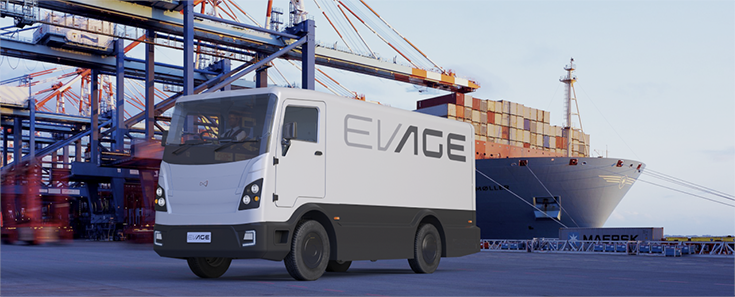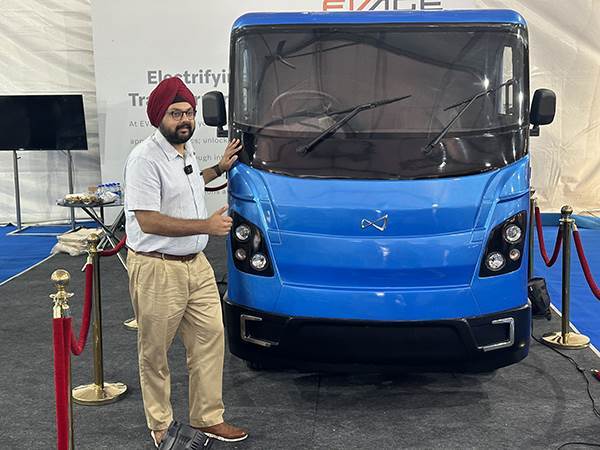Mohali-based EVage Motors, which began operations in CY2014 with the intent of reducing carbon emissions in the light commercial vehicle (LCV) segment, is targeting an up to 30% market share by CY2035. This is by when it expects the category to double to a million units in India.
The company estimates an 8% CAGR for the LCV segment over the next decade, by when it expects EVs to penetrate around 15-20% of the category. E-LCVs, despite their strong potential to offer sustainable last-mile delivery solutions, currently face adoption hurdles due to challenges in EV financing, inadequate charging infrastructure and resale value.
According to Inderveer Singh Panesar, founder and CEO, EVage Motors, “One cannot disregard these constraints that continue to be there and, therefore, a 15-20% penetration level is a realistic expectation. Moreover, government support and how fleet operators react to the market dynamics will determine the EV penetration in this category.”
EVage Motors, however, is confident about its market potential as the company’s maiden product – the FR8 1-ton small commercial vehicle – which was launched in CY2012, claims to offer a net-positive TCO, while also promising high resale value, even without factoring in subsidies. The company says its vehicle has been deployed in the Amazon fleet in Mohali since the last two years, and allows fleet operators to maximise vehicle utilisation owing to the 20-minute fast-charging capability it offers.
 Inderveer Singh Panesar: “What gives us an edge is an advanced battery that offers over 100km range on a single charge, high volumetric density of the cargo area, and longer life.”
Inderveer Singh Panesar: “What gives us an edge is an advanced battery that offers over 100km range on a single charge, high volumetric density of the cargo area, and longer life.”
Three-pronged product differentiation strategy
“We are adopting a three-pronged product differentiation strategy to stand out from the competition and offer value for our customers. An advanced battery that offers over 100km range on a single charge, high volumetric density of the cargo area, and longer life, are the main attributes that give us an edge,” Singh pointed out.
The FR8 deploys a 15kWh lithium-titanium-oxide type battery pack that is packaged in-house at the company’s 2,000-unit-annual-capacity plant in Mohali, with the cells claimed as being sourced from Toshiba, in Japan. The battery offers around 100km range on a single charge, and with fast charging ability, enables fleet operators to minimise downtime.
Moreover, the payload capacity and cargo design allow more goods to be carried and delivered in a single trip, compared to some internal-combustion-engine-powered counterparts. “Fleet operators are smart to understand these metrics and choose our product,” Singh said, who also explained that EVage Motors owns the IP on the powertrain, battery, and vehicle control software, which is all developed in-house as a full stack. The company also recently partnered UK-based DG Innovate to locally manufacture the latter’s e-drivetrain in India.

Eyeing more capital after achieving 75% capacity utilisation
While it has so far only raised a seed-funding round of US$ 28 million or approximately Rs 233 crore, EVage Motors aims to hit 75% capacity utilisation at its existing modular facility in Mohali, before eyeing another round and raising more capital. The miniature and modular manufacturing facility could be replicated in other parts of the country, as the company scales its presence beyond Mohali and Delhi-NCR, into 15 more cities by end-CY2025.
“We aspire to sell a few more thousand vehicles before we raise the next round of funding. We want to become a pan-India distribution company, and thus, we will be spending heavily to build our network over the next two years,” he said. The company will continue to target e-commerce logistics providers, as well as small fleet operators as its key customers, in its evolving journey and ambitions of becoming profitable in the coming years.
